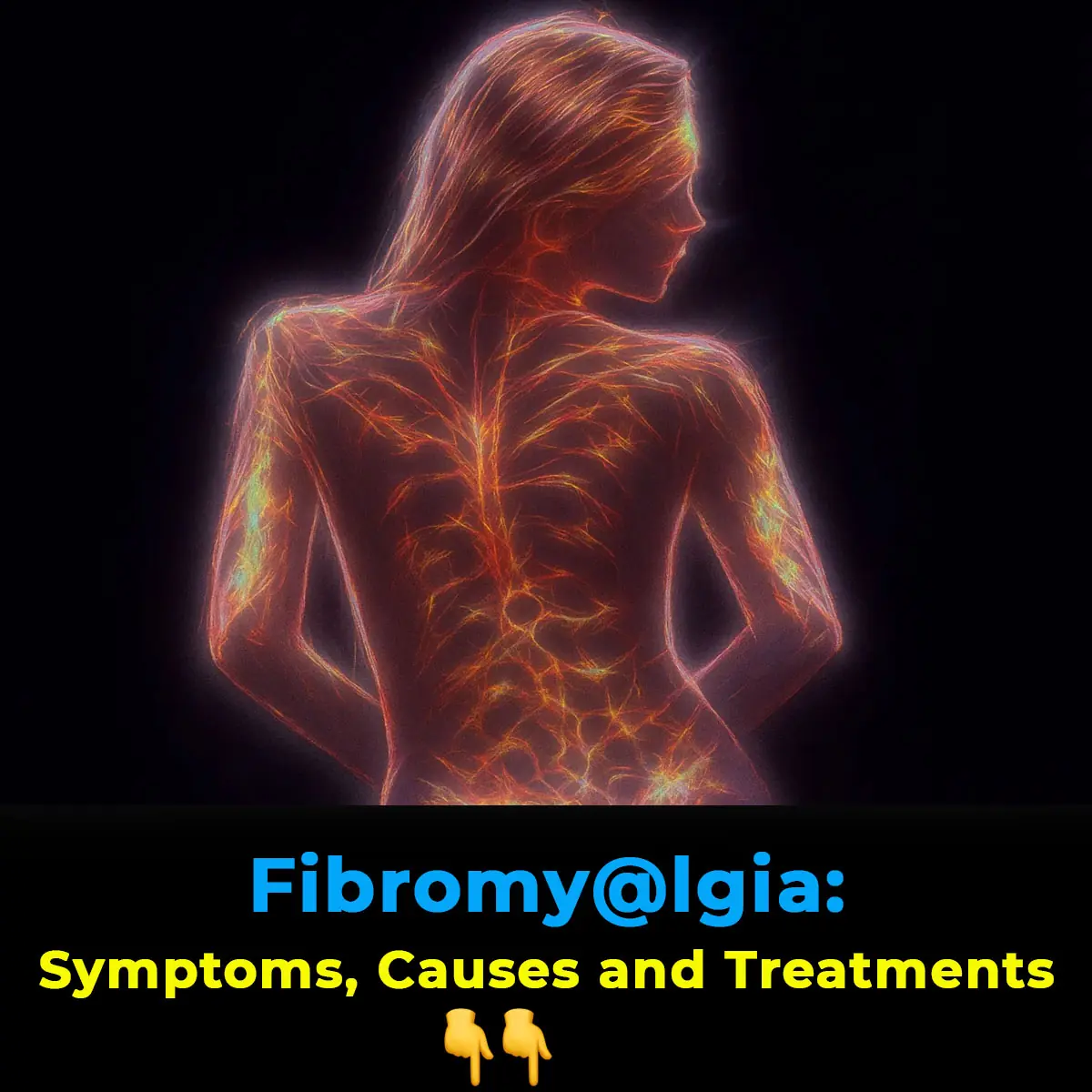
Fibromyalgia: Symptoms and 8 Natural Ways to Manage It

Fibromyalgia is a chronic condition characterized by widespread musculoskeletal pain, fatigue, sleep disturbances, and cognitive difficulties. It is often considered a central pain syndrome, involving abnormal pain processing in the brain. While the exact cause of fibromyalgia remains unclear, factors such as genetics, environment, and psychological stress are thought to play a role. Diagnosing fibromyalgia can be difficult due to its broad range of symptoms, which can overlap with other conditions. Common symptoms include:
-
Widespread pain in muscles and joints
-
Persistent fatigue
-
Sleep issues, such as insomnia or restless leg syndrome
-
Cognitive difficulties, often referred to as “fibro fog”
-
Chronic headaches or migraines
-
Increased sensitivity to touch, pressure, and temperature
-
Digestive problems like irritable bowel syndrome (IBS)
-
Mood disorders, including anxiety and depression
If you suspect you have fibromyalgia, it's important to consult a healthcare provider for an accurate diagnosis, as its symptoms are shared with other health conditions.
8 Natural Strategies to Manage Fibromyalgia Symptoms
While there is no cure for fibromyalgia, several natural methods can help ease its symptoms:
-
Regular Exercise
Engaging in low-impact exercises such as walking, swimming, or yoga can help improve flexibility, strengthen muscles, and reduce pain. Gradually adding strength training and cardio exercises may also prove beneficial. -
Stress Management
Techniques like meditation, deep breathing, and mindfulness can help lower stress levels, which often aggravate fibromyalgia symptoms. -
Adequate Sleep
Establishing a consistent sleep schedule and creating a restful environment can enhance sleep quality, which is crucial for symptom relief. -
Balanced Diet
Eating a diet rich in fruits, vegetables, whole grains, and lean proteins can support overall health. Some people find symptom relief by avoiding processed foods, sugar, caffeine, gluten, or dairy. -
Supplements
Supplements such as magnesium, vitamin D, and omega-3 fatty acids may help manage symptoms. Always check with a healthcare provider before adding new supplements to your routine. -
Acupuncture
Acupuncture, a practice from traditional Chinese medicine, involves inserting fine needles into specific body points and may help reduce pain and improve general well-being. -
Massage Therapy
Regular massage therapy can help relieve muscle tension, enhance circulation, and encourage relaxation, which may reduce fibromyalgia-related pain. -
Mind-Body Practices
Mind-body practices such as tai chi and yoga combine physical movements with mental focus, helping to reduce stress and improve physical function.
Incorporating these natural approaches into your daily routine may assist in managing fibromyalgia symptoms and improving your overall quality of life. Be sure to consult with healthcare professionals before making significant changes to your health routine.
News in the same category


15 Early Warning Signs That Cancer Is Spreading In Your Body

Natural Ways to Remove Dental Plaque That Are Never Shared in Clinics

Chagas Disease and the Fight Against Nighttime Bugs

Scientists Share Breakthrough Findings From Male Birth Control Pill Trial And Explain How It Actually Works

7 Warning Signs of Lung Cancer You Shouldn’t Ignore

80% of Heart Attacks Can Be Prevented—Just Do These 5 Easy Things

Vaping Dangers: Popcorn Lung, Cancer, Hypertension, Brain Damage and More

Warning Signs of Zinc Deficiency and How to Cure It

Ginger Should Be Avoided When Taking Certain Medications or Having Certain Health Conditions

Is It Safe to Wear Underwear Two Days in a Row? Experts Weigh In

Just one spoon and you’ll run to the bathroom

Cinnamon and Honey: The Most Powerful Remedy Even Doctors Can’t Explain

Why Does the Vag.ina Smell Sour? 4 Real Reasons Every Woman Should Know

Experts Uncover the Worst Sleep Position for Your Body—And Most People Still Use It!
Your sleeping habits - especially your position - can either restore or undermine your health.

Doctor Issues Your Beloved Air Fryers May Pose Cancer Risk — Urges People To Stop Using Them
Dr. Desai’s statement has stirred up intense debate online. Some viewers applauded her for raising awareness, while others remained skeptical.

8 Foods That Help Eliminate C@ncer Cells

The Deficiency of These Vitamins Contributes to Panic Attacks

8 Signs Your Oxygen Levels Might Be Too Low
News Post

6 Powerful Teas That Will Instantly Reduce Inflammation and Boost Your Health

15 Early Warning Signs That Cancer Is Spreading In Your Body

Natural Ways to Remove Dental Plaque That Are Never Shared in Clinics

Test Your Color Vision: Can You Read These Words?

Chagas Disease and the Fight Against Nighttime Bugs

Scientists Share Breakthrough Findings From Male Birth Control Pill Trial And Explain How It Actually Works

Should You Turn Off WiFi and Bluetooth at Night?

7 Warning Signs of Lung Cancer You Shouldn’t Ignore

80% of Heart Attacks Can Be Prevented—Just Do These 5 Easy Things

Vaping Dangers: Popcorn Lung, Cancer, Hypertension, Brain Damage and More

Warning Signs of Zinc Deficiency and How to Cure It

Ginger Should Be Avoided When Taking Certain Medications or Having Certain Health Conditions

Insane amount of money viral 'Storm Area 51' stunt cost the US military

Scientists explain 'puzzling blob' heading straight for New York City that's hidden 200 kilometers below our feet

The Second Lunch: How One Quiet Act Sparked a Schoolwide Movement.

The Wild Soul Who Chose Me: A Farewell to Nawty.

My Husband Said He Was Helping His Brother Fix the Roof After Work for Two Weeks – Then I Ran Into My SIL and Heard the Shocking Truth

My New DIL Shamed My Granddaughter Over a 'Cheap' Gift – She Didn't Expect the 'Surprise' I Had in Store for Her

At Our Baby's Christening, My FIL Ran Into the Church and Screamed, 'Stop! This Is the Wrong Baby!'
